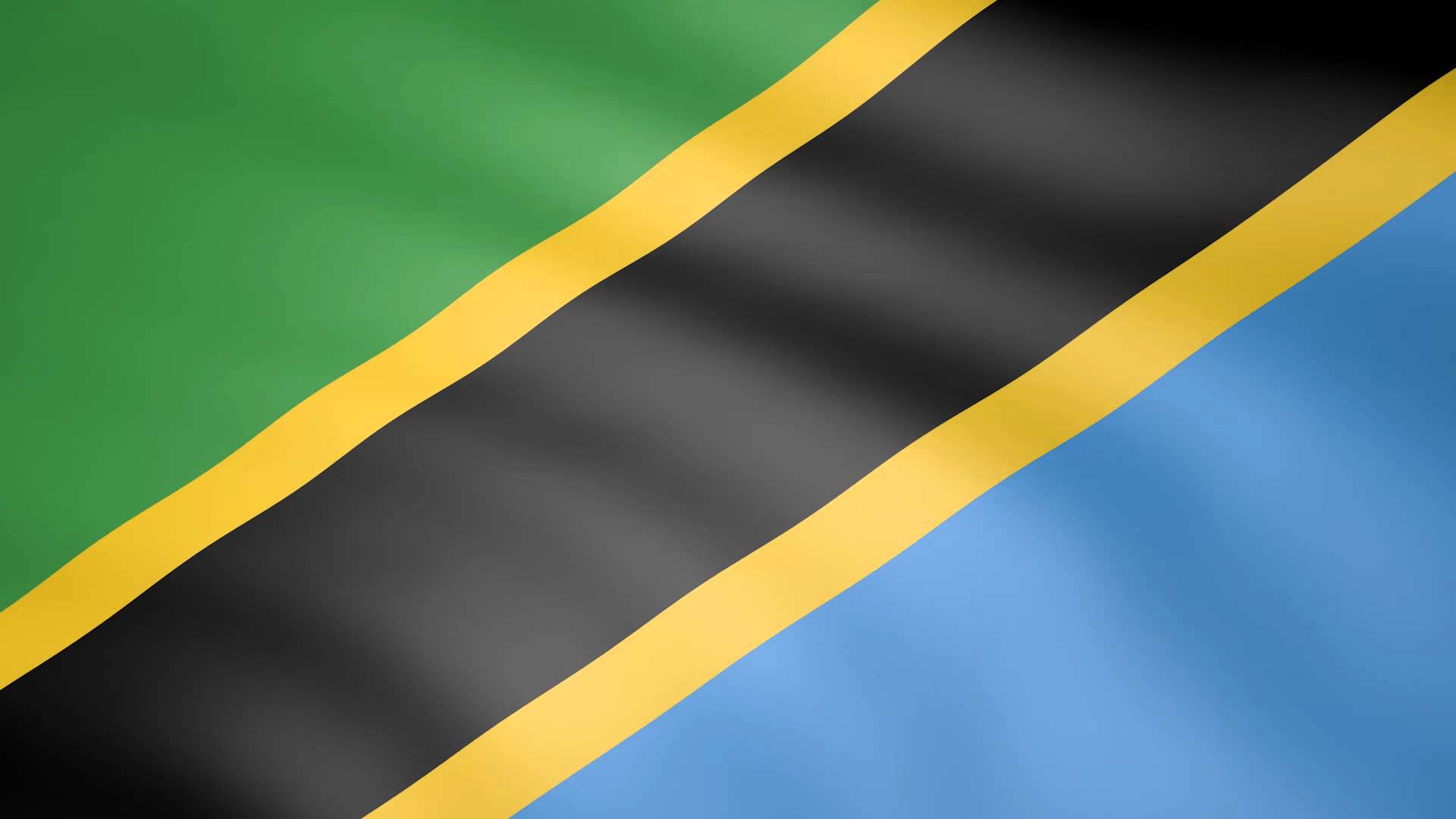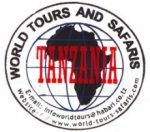Tanzania General Information

Climate
Tanzania is a land without winter. The hilly country in the North has a pleasant climate from June to September. The coast is generally hot and humid with an average temperature of 30 degrees celcius. The main rainy season is from March to May, the hottest being from October to February. Temps at the summit of Kili, range from -20 to -25C.
The Language
Although Tanzania has many local dialects, Swahili is the official language. English is Tanzania’s second official language and its commercial language. Most people you will come in contact with will be quite fluent in English. You may find it useful to buy a Swahili-English Phrase book on arrival.
Pasport and Visas
All visitors to Tanzania must have passports valid for travel to Tanzania as well as visas to enter Tanzania obtainable from our diplomatic representatives abroad.
Currently, visas are available for most nationalities at TZ Airports & Border posts (if you intend purchasing a visa on arrival, please check with the TZ diplomatic reps abroad or check with us prior, to make sure this option is available).
Health
Tanzania has re-introduced health desks at all ports of entry at Mainland Tanzania & Zanzibar. Please ensure you bring yellow fever vaccination certificates with you to show on entry, if requested.
Anti-malarial medication is recommended to be taken a few days prior to arrival, during your stay and a short period after returning. We would strongly recommend that you consult your G.P/family doctor/travel clinic for advice on the most appropriate anti malarial medication and inoculations you may require.
For those going Mountain Trekking, we will assume you have received prior consent from your G.P & Dentist. Note if you have a cough, cold, or any respiratory illnesses, diabetes (or any illness due to irregular blood sugar levels)DO NOT attempt to trek these mountains, it can be dangerous and could prove fatal. If you do attempt it anyway(we need written approval from your GP), park regulations restrict you to trek above 3,000m. If you have any physical disabilities please let us know. Also note: You are NOT permitted to trek these mountains if you have any of the following; Cardiac problems, high/low blood pressure, pulmonary diseases as well as respiratory problems. Extensive reading on mountain/high altitude related & tropical diseases are highly recommended.
Electricity & Appliances
Most Hotels/Lodges in Cities in Tanzania run on electricity with many having standby generators. However please note that many Tented Camps and Lodges when on safari in Tanzania run on generators which are run for just a few hours each day. These are often turned off after dinner and on again just before dawn. We recommend that you carry a flashlight and extra batteries for your video cameras, digital cameras & for any electrical appliances you may require on the trip.
The electrical voltage in Tanzania is 220V-240V; 50Hz.
A rectangular 3-square pin UK plug adapter is required to use electrical appliances including video cameras and digital cameras.
If you come from a country where voltage is 120V (or lower than 220V), Please take note of the following:
Check to see the equipment you are carrying has a dual voltage power supply; we recommend you check that the input reads 100/120V – 240V.
If this is not so, then you will need to bring a plug adapter, as well as a transformer/converter.
Money Matters
The currency in Tanzania is the Tanzania Shilling. The US Dollar, however, is most widely used. Foreign currency can be exchanged for local currency at the banks and bureau de changes. Changing money on the streets is prohibited and dangerous.
CASH: Older & torn notes are not readily accepted so we strongly recommend the newer series notes.
CREDIT CARDS: Although some hotels/curio shops accept Credit Cards. Credit Cards are not so widely used. In places that they can be used, surcharges of between 5-15% or more should be expected.
TRAVELLERS CHEQUES: can sometimes be difficult to cash and in instances where credit cards may not be accepted, we recommend you bring enough US Dollar cash to cover all additional expenses you may incur.
ATM’s: Many major cities in Tanzania have ATM’s (that accept Master card and Visa). A pin code is required, and the cash withdrawal limit is about US$300 per day which you receive in local Tanzanian Shillings[/vc_column_text][/vc_accordion_tab]
Below is a recommended guideline for tipping:
Safari Driver/Guide:
US$10 to $15 per vehicle per day
Safari Cook:
US$10 to $15 per vehicle per day
Mountain Guide:
US$10 per day per guide from group
Mountain Cook:
US$10-$12 per day per cook from group
Assistant Mt. Guide:
US$8 per day per asst guide from group
Porters on Mountain:
US$15-$20 per porter for duration from group
Porters at Lodges:
US$1-2
Gratuity Box:
These are found at most lodges. We recommend these as your tip is then distributed fairly amongst all the staff
We recommend that tipping is usually done at the end of the trip and given directly to the person it is meant for.
Whilst larger denomination bills are acceptable, we recommend you also bring some smaller denomination bills as sometimes change is not easily attainable.
Responsibility and Insuarance
It must be clearly understood that these are adventure safaris and there are certain dangers and risks which are inevitable. Whilst every care is taken for the safety and comfort of our clients, the company accepts no liability for all or any of the following:
- Damage or loss of property of any client, howsoever caused.
- Sickness, infection, injury or death of the clients, howsoever caused.
- Change of itinerary due to road and weather conditions.
- Damages, directly or indirectly, arising out of delays in departure or arrival including delays occasioned by the missing of road, rail, ship or aircraft connections.
It is therefore understood, on receiving a clients’ booking that necessary insurance covers against these and other risks have been taken care of by the client.
We request you to come with an extra copy of the cover so we can have this in our files, should anything go wrong when you are on safari.
Baggage on safari
Baggage size must be reasonable.
On Safari: unless there are 2 pax only in the vehicle, we will NOT take suitcases. (One backpack or soft-sided duffle bag per person of max. 20kgs is fine)
On our Treks (Kilimanjaro, Meru): we will NOT take suitcases. These make it very difficult & dangerous for porters to carry. We recommend one medium sized duffel-bag or back-pack per person (max. 15kgs). For Kilimanjaro especially, bags must be water-proof. A small day-pack will be found handy.
On internal flights: some internal airlines only permit one piece check in baggage of maximum weight of 15 kgs plus one carry-on luggage including camera, of maximum weight 5kgs. In instances where you have excess luggage weight, a fee may be imposed however, some aircraft, if full, will not accept excess weight for reasons of safety, So please be sure to pack light, store excess un-needed baggage at appropriate points so pick up is easily handled.
What to bring
Soft bag rather than a suitcase
Casual, comfortable, lightweight cotton clothing is best (khaki, brown, green & beige colours)
Our list of suitable items would include:
>> Light cotton trousers or convertible pants
>> Pyjamas
>> Shirts/Blouses with long sleeves
>> Light tops & T-shirts
>> Shorts
>> Jeans or safari trousers for evenings and cooler days
>> Warm fleece, jacket or warm sweater
>> Cotton socks & underwear
>> A pair of flip-flops (or sandals)
>> Comfortable walking shoes/boots
>> Sun block, lip balm
>> Hat
>> Flashlight
>> One Swimsuit
>> Light, compact raincoat during the rainy months
>> Binoculars
>> Camera, extra batteries, charger, and lots of film! Or memory cards (digital cameras)
>> Moisturisers
>> Personal toiletry requirements + hand towel
>> Wet wipes, Kleenex
>> Insect repellent
>> Sunglasses
>> Contact lenses solution, (note: Tanzania can be very dusty) & reading glasses
>> A medical kit (band-aids, diahhorea medicine, antibiotic cream, tummy-ache medication, antihistamine cream, anti-allergy medication, anti malarials, etc)
For mountain trekking checklist please visit the Mountain climbing page.
How to ge to Tanzania
BY AIR
Kilimanjaro airport (JRO) is the international airport serving Arusha.
KLM, Ethiopian Airlines, Air Tanzania, Air Tanzania, Precision Air fly here.
Dar es Salaam International Airport serves Dar es Salaam
BA, Emirates, Gulf Air, Swiss Air, Egypt Air, Ethiopian Airlines, KLM, Air Tanzania, Precision Air, Tanzania Airways fly here
Domestic flight Connections form Dar es Salaam to Arusha or Zanzibar can be done from here.
Jomo Tanzaniatta International Airport (JKIA), serves Nairobi
KLM, BA, Swiss Air, Egypt Air, Ethiopian airlines, Qatar, Emirates, Tanzania Airways, Virgin Atlantic and many other airlines fly here.
One can connect with Precision Air, Air Tanzania, Tanzania airways to Kilimanjaro or Dar es salaam airport
WILSON AIRPORT, Nairobi
Regional air & Air Tanzania fly to JRO & to Arusha airport daily.
BY ROAD
FROM NAIROBI TO ARUSHA BY SHUTTLE BUS
Shuttle buses from Nairobi to Arusha depart twice daily at: 08h00 and 14h00. Cost*: US$35per person (one way) and the approx. travel time is 5 – 6 hours.
Shuttle used by us: IMPALA Shuttle. Base: Silver springs hotel, Nairobi 7 Impala hotel, Arusha. We can book this for you. However, you need to call them to reconfirm your seats.
We can also arrange for the shuttle to pick you up at the JKIA airport or major town hotels or drop you there but you need to pre book this with us.
FROM NAIROBI TO ARUSHA BY PRIVATE VEHICLE TRANSFER
On request, we can arrange a PRIVATE road transfer from Nairobi to Arusha and/or vice versa. This involves vehicle changes at the border. Travel time is approx 5hrs. However, if you are on a tight flight schedule, please allow an extra 2 hrs incase of traffic jams.
